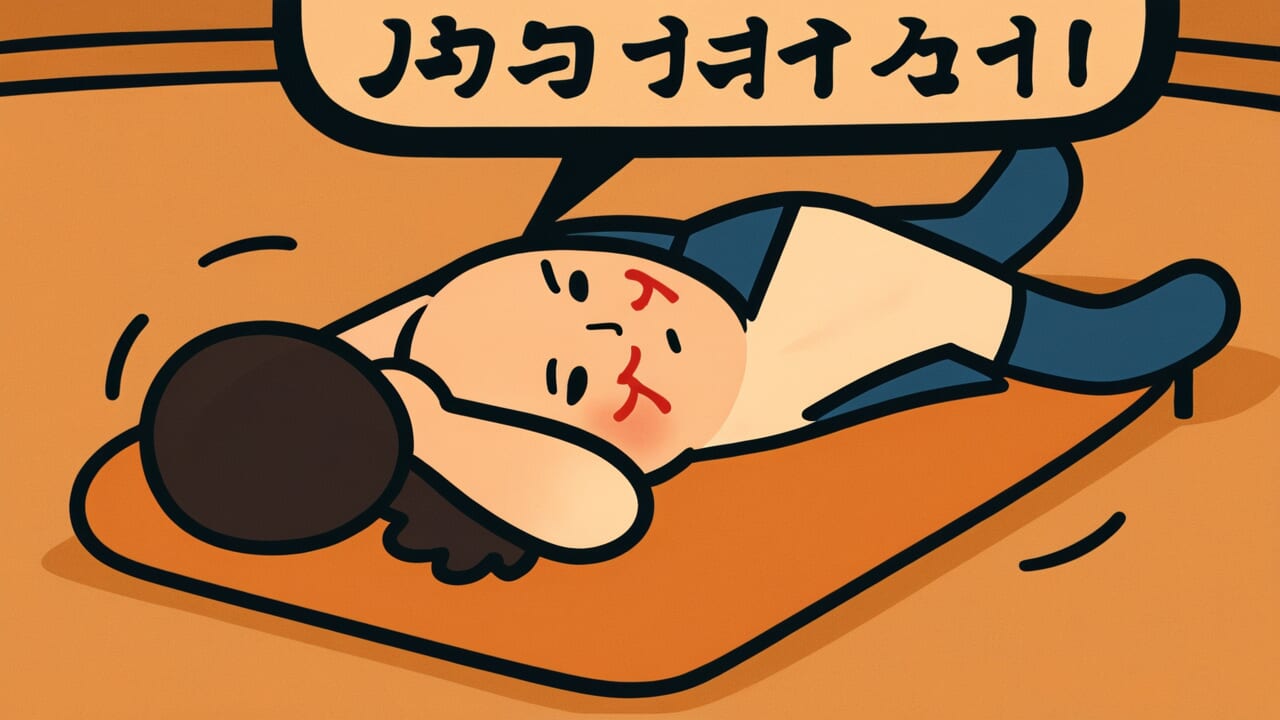How to Read “There is no ease like death”
Shinu hodo raku wa nai
Meaning of “There is no ease like death”
“There is no ease like death” is a proverb that expresses resignation. It means nothing releases you from suffering as completely as death does.
As long as we’re alive, we can’t escape worries, pain, responsibilities, and pressure. But once we die, we become completely free from all these struggles. The proverb shows a kind of philosophical acceptance of this reality.
People use this expression when they’re exhausted from life’s hardships. They say it when they deeply feel how difficult living can be.
However, this doesn’t necessarily mean wishing for death. Instead, it expresses how hard life truly is. It acknowledges the weight of existence itself.
Today, we don’t use such pessimistic expressions in everyday conversation. But understanding this proverb helps us recognize the depth of human suffering. It reminds us how heavy the burden of living can be.
Origin and Etymology
No clear historical record shows when this proverb first appeared. The exact origin remains unknown in documented sources.
However, the structure of the phrase itself is striking. It creates a powerful contrast by linking two opposite ideas together.
“Death” is what humans fear most. “Ease” represents peace and comfort. By connecting these words, the proverb creates a shocking paradox. This paradox shows just how deep life’s suffering can be.
Japan has long been influenced by Buddhist thought, especially the concept of “birth, aging, sickness, and death.” This worldview sees life as inherently filled with suffering.
As long as we live, we cannot escape various forms of pain. The only complete release from this suffering is death. This resigned acceptance forms the background of this proverb.
During the Edo period, common people’s lives were far from easy. They suffered from famines, epidemics, and heavy taxes. Life was often harsh and unforgiving.
In such difficult circumstances, pessimistic expressions like this were born. People living through these hardships found this saying relatable. Though the words are short and simple, they contain a profound view of life.
Usage Examples
- After years of caregiving exhausted her completely, she once said there is no ease like death
- Chased endlessly by debt collectors, there was a time when he thought there is no ease like death
Universal Wisdom
“There is no ease like death” contains deep insight into the essential difficulty of human existence. Why was such a harsh proverb created and passed down through generations?
Because our ancestors honestly acknowledged a fundamental truth. Living is never easy. This recognition wasn’t pessimism but realism.
From the moment we’re born, we face countless challenges. We must eat, protect ourselves, build relationships, and fulfill roles in society. Even when we solve one problem, another appears. This chain never ends while we’re alive.
This proverb reveals the existential loneliness and burden of being human. No matter how wealthy we become or how high we rise, we cannot escape the fundamental suffering that comes with living.
That suffering might be illness. It might be aging. It might be losing someone we love. Or it might be inner conflict within our own hearts.
Yet paradoxically, this proverb also highlights the value of living. Life is this difficult, yet people have continued to live through it. That strength and willpower show the dignity of human existence.
Because we know suffering, we understand the value of small joys. This harsh recognition of reality actually leads to a deeper understanding of what it means to live.
When AI Hears This
The universe has an absolute law: “If left alone, everything becomes disordered.” This is the second law of thermodynamics, the law of increasing entropy.
For example, a room always gets messy without cleaning. Buildings always decay without maintenance. Maintaining order requires constant energy input.
Interestingly, living organisms are no exception. The human body is an ultra-sophisticated ordered system of about 37 trillion cells working in precise coordination.
To maintain this order, we consume about 2,000 kilocalories of energy every day. Our hearts beat 100,000 times daily. Our cells constantly undergo metabolism. Even while sleeping, we use about 1,200 kilocalories as basal metabolism.
Simply being alive means doing enormous “work” to resist entropy’s increase. We’re constantly fighting against the universe’s natural tendency toward disorder.
Death is when this resistance stops. When energy input ceases, the body rapidly moves toward decomposition. Following physical laws, it shifts from high order to disorder.
Ironically, this is the most natural state in the universe. It’s the “easy state.” Living is an act of defying universal laws, which is why it’s inherently difficult.
This proverb is a rare case where life experience matches physical law perfectly. The feeling that life is hard aligns with the scientific reality of existence.
Lessons for Today
This proverb teaches us the importance of having courage to honestly acknowledge life’s difficulties. Modern society overflows with messages like “be positive” and “stay optimistic.”
But sometimes we need to admit: “Living is really hard.” This acknowledgment isn’t weakness. It’s honesty.
If you’re feeling crushed by life’s burdens right now, it’s not because you’re weak. Living itself is inherently very difficult. This recognition frees you from self-blame.
At the same time, this proverb asks us a question. If life is this hard, what makes it worth living? The answer might lie within the suffering itself.
The sense of achievement when overcoming difficulties. The joy of supporting someone. The emotion when touching something beautiful. We can only experience these things because we’re alive and struggling.
What matters most is not carrying everything alone. Talk to someone about how hard life is. Ask for help. That’s not weakness. That’s being human.



Comments